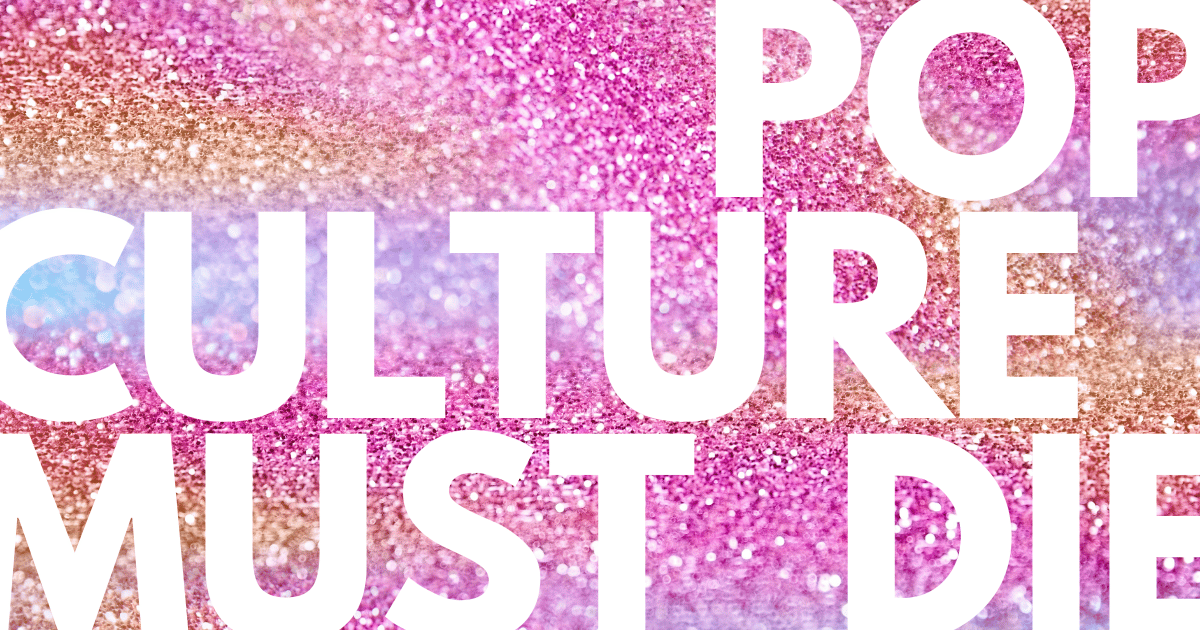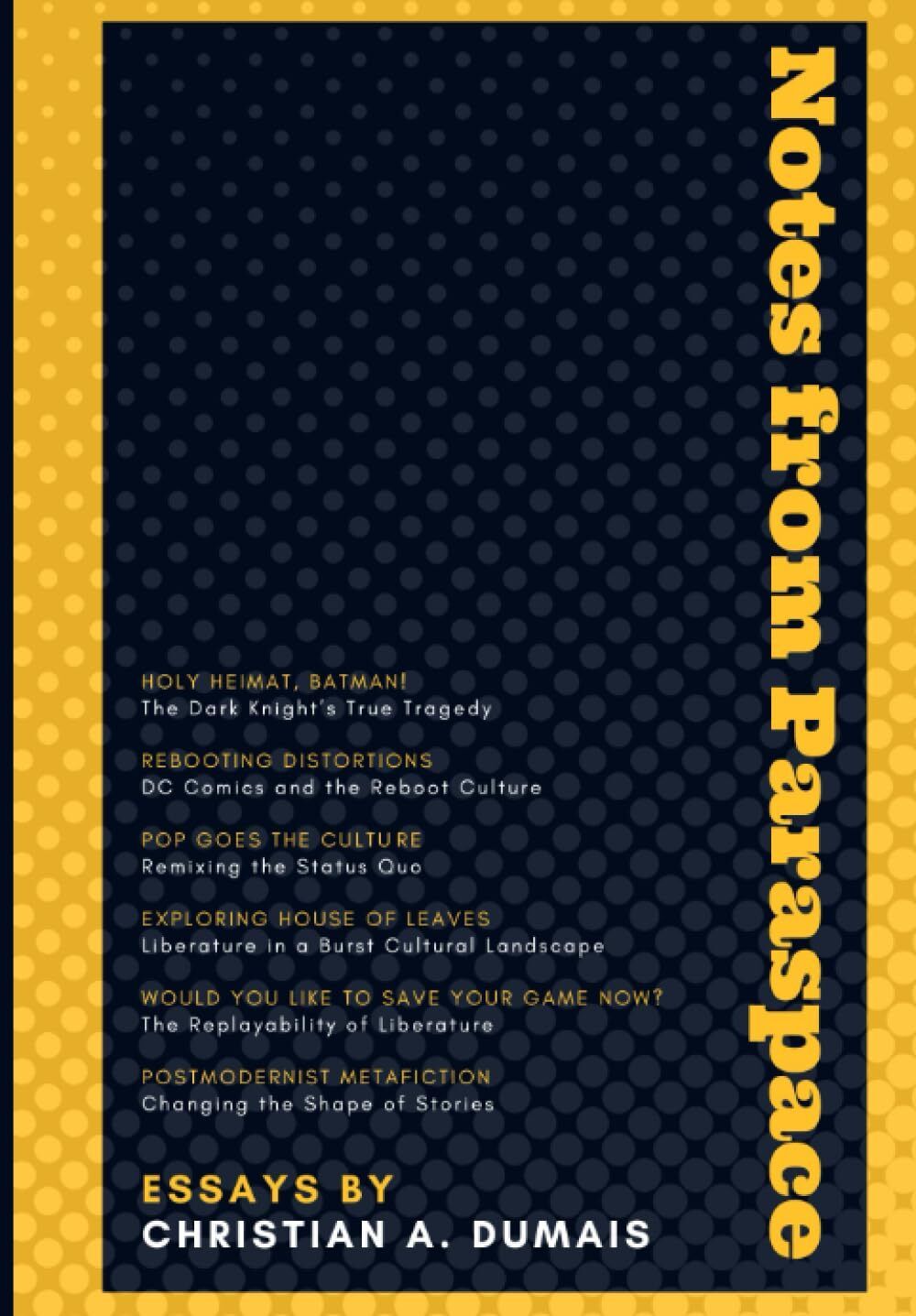OPENING MONOLOGUE
Hello there from Poland.
We’ve been experiencing unseasonably warm weather here, which means that there’s a surprise coming soon — most likely in the form of snow and ice. We fall for this trick every year. Personally, I don’t mind, but I feel bad for the all the plants and trees.
Pop Culture Must Die is the official newsletter for Christian A. Dumais — an American writer and freelance editor living in Poland. His books include Smashed, Killing It, and Go West.
NPR said, "People get paid a LOT of money to write comedy who are not one-tenth as funny as [Christian]."
Your mileage may vary.
You know what’s not a trick? This newsletter! Let’s do this…
AT THE DESK
Why Can’t Jack Cooper Come to America?
My father was a middle school science teacher. While I attended the same school, I didn’t have him as a teacher, but most of my friends did. Even to this day, they’ll tell me stories about how much they liked his class.
“I learned so much about science,” they’ll say. “And about Jack Cooper!”
You see, my father showed episodes of The Undersea World of Jacques Cousteau to his classes. While this show is good, it wasn’t what you’d call exciting TV — even by 80s standards.
So my father did what any normal science teacher does. He told the students that the famous French oceanographer and filmmaker Jacques Cousteau was actually Jack Cooper, a con artist from Detroit who fled the US to escape the police before reinventing himself in France.
“This is why Cousteau can’t step foot in the US. And if you pay attention closely to this episode,” my father would tell the class, “you can hear his accent slipping.”
This is how he got seventh-grade students to watch The Undersea World of Jacques Cousteau as if their lives depended on it.
My blood pressure is so high I can only listen to the Pepa parts of "Shoop".
— Christian A. Dumais (@cadumais.com) 2025-03-06T08:02:19.160Z
THE READING PILE
Road to the Dark Tower III
It’s time to talk about the third book in Stephen King’s Dark Tower series — The Waste Lands.

A couple of weeks back, when talking about The Drawing of the Three, I noted how King’s writing was operating at the height of his power. To drive home this point, it’s important to note that the book came out between It and Misery — two pop cultural milestones in King’s body of work.
Four years later, The Waste Lands arrives between Four Past Midnight and Needful Things — a very different time for King’s writing. I don’t want to say that the 90s were a low point for King’s work. It was more of a transition.
[King has two transitional point — both because of recovery. The first transition happened in the late 80s/early 90s as King recovered from alcohol and drugs. Needful Things is King’s first sober novel. The second transition happened in the early 2000s as King recovered from a life-changing event that almost took his life.]
[I should add that I think King’s golden age of storytelling might be his last 20 years’ worth of writing. Interestingly enough, his work after he completed the Dark Tower series. I have some thoughts on this, but I’ll save it for when I wrap up the books.]
This is all a long-winded way of saying that it’s remarkable that King was still operating at a high level with the books most of his readers weren’t reading at the time. Because if The Drawing of the Three was The Empire Strikes Back to The Gunslinger, The Waste Lands is The Empire Strikes Back to The Drawing of the Three. That is to say, it’s that good.
Set just a few months after where the previous book ended, The Waste Lands wastes (I know) little time getting to the meat of the story. If King had ended the series here, it could have worked as a trilogy, as it thematically circles back to the questionable choices the Gunslinger made in the first book and offers a path toward redemption. Of course, we haven’t gotten to the Dark Tower yet, so we still have a ways to go.
The Waste Lands continues the tradition of never giving you what you expect. And this needs to be stressed: this book is a tremendous amount of fun. It’s got some big set pieces and a great chase sequence in the book’s third act, as well as all of the weirdness you’ve come to know and love with the series.
Plus, it ends with a cliffhanger. My kryptonite.
[Have I ever talked about my obsession with cliffhangers? As a kid, nothing delighted me more than seeing “To be continued” at the end of my favorite TV shows. The Empire Strikes Back blew me away but I didn’t know you could leave people hanging at the cinema like you could on TV. I know it’s not perfect, but the Phantasm series is one of my favorites because of how it uses cliffhangers.]
Moving forward, I’m going to shift gears before I get to Wizard and Glass and explore some Dark Tower adjacent books like Hearts in Atlantis and Black House. Also, I found another Banana Yoshimoto book in my library that I want to tackle.
RANDOM SEGUE
Shirley Jackson
Shirley Jackson’s “The Lottery” was published in the New Yorker in 1948. The short story — or rather its dark twist — garnered a LOT of hate mail.

In fact, “The Lottery” had, according to the New Yorker, "the most mail the magazine had ever received in response to a work of fiction." One of those letters was from Jackson’s mother.
When South Africa later banned the story, Jackson was delighted. She reasoned that if they banned it, they at least understood the story and her intentions.
The story goes back and forth from being taught in and then routinely banned by American public schools.
Despite its long and rocky history, “The Lottery” is now recognized as one of the greatest American short stories ever written. And writers like Joyce Carol Oates and Stephen King regard Jackson as a major influence on their writing.
Personally, I think it’s one of the most important short stories ever written from one of our greatest writers. If you haven’t read “The Lottery,” you can read and/or listen to it here.
OUTRO
How Can I Leave?

Me at parties.
I’m in the middle of re-organizing my office. I made the mistake of buying a new bookshelf (mostly for all the King hardcovers I’ve been getting) which started a domino effect of repainting the walls, reorganizing the library, and general spring cleaning.
There’s a lot of “Why do I still have this?” and “Where did this come from?” happening.
Stay safe. And have a great week!



